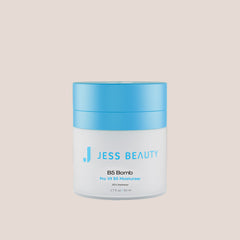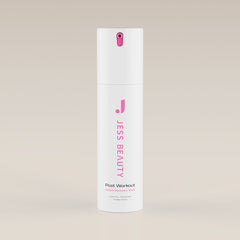¿Qué es lo primero que se te viene a la mente cuando escuchas la palabra “probiótico”?
Tal vez piensas en yogures, alimentos fermentados como kimchi o incluso suplementos para la salud intestinal. O quizá recuerdes esa receta de chucrut que te apareció scrolleando en redes sociales. Pero, ¿sabías que el mundo de los probióticos es mucho más amplio?
Por definición científica, los probióticos son microorganismos vivos que, cuando se consumen en cantidades adecuadas, aportan beneficios a la salud del huésped. Incluso, la palabra proviene del griego pro bios, que significa literalmente “a favor de la vida”.
Hoy en día, estos pequeños organismos están ganando protagonismo no solo en el ámbito de la nutrición, sino también en los estudios y artículos sobre el cuidado de la piel. Si quieres descubrir cómo pueden beneficiar a tu piel y por qué están revolucionando la cosmética, quédate conmigo en este blog.
¿Qué son los probióticos?
Antes de hablar sobre sus beneficios para la piel, aclaremos qué son los probióticos. Son microorganismos vivos, a menudo llamados "bacterias buenas", que aportan beneficios para la salud cuando se aplican o se ingieren en el cuerpo.
Los probióticos ayudan a equilibrar el microbioma, que es un ecosistema complejo de microorganismos que habitan en diversas partes del cuerpo, como el intestino. Pero además, resulta que tu piel también tiene su propio microbioma, y los probióticos pueden ayudar a mantener ese equilibrio.
Para el skincare, los probióticos se aplican tópicamente o se toman por vía oral en forma de suplementos que prometen apoyar tu piel desde adentro hacia afuera.
¿Qué hacen los probióticos por la piel?
Los probióticos, cuando se aplican de manera tópica en productos diseñados para mejorar la salud de la piel, tienen como objetivo acelerar y mejorar la salud de la piel, resolver problemas cutáneos (como acné, dermatitis atópica, rosácea, psoriasis, cáncer de piel y heridas), mejorar la apariencia de la piel (como antienvejecimiento, antiarrugas, hidratación y tratamientos para la piel), o prevenir problemas cutáneos.
Estos efectos hacen que estos organismos sean una herramienta prometedora en el cuidado de la piel para abordar diversas preocupaciones y potenciar una apariencia saludable.
Te nombramos cinco de sus principales beneficios:
- Fortalecen la barrera cutánea
La barrera cutánea es la primera línea de defensa de la piel, formada por células y lípidos que previenen la pérdida de agua y bloquean contaminantes, bacterias y alérgenos.
Los probióticos fortalecen esta barrera al equilibrar el microbioma, estimular péptidos antimicrobianos y promover la síntesis de lípidos esenciales. Esto no solo mejora la hidratación, sino que también aumenta la resistencia de la piel frente a agresiones externas y reduce su sensibilidad.
- Equilibran la microbiota cutánea.
¿Luchas con enrojecimiento, irritación o condiciones como el eccema? Los probióticos tienen propiedades antiinflamatorias que pueden calmar la piel sensible. Al reducir la inflamación, crean un tono de piel más suave y uniforme.
- Controlan el acné
El acné puede ser causado por un crecimiento excesivo de bacterias malas en la piel. Los probióticos ayudan a restaurar el equilibrio, manteniendo bajo control las bacterias que causan los brotes. Además, reducen el enrojecimiento y la inflamación asociados con los granos.
- Mejoran la hidratación
Algunas cepas mejoran la capacidad de la piel para retener la humedad, lo que es ideal para quienes tienen la piel seca o deshidratada.
- Protegen contra el envejecimiento
Los probióticos incluso pueden ayudar a combatir el envejecimiento prematuro neutralizando los radicales libres, esas moléculas responsables de las líneas finas, arrugas y la piel apagada.
¿Realmente ayudan los probióticos a la piel?
Como hemos descrito, los probióticos han demostrado ser útiles para aliviar o incluso prevenir una amplia gama de afecciones cutáneas y sus síntomas característicos.
Estudios sugieren que pueden mejorar la hidratación de la piel, reducir brotes de acné y aliviar condiciones como la rosácea y la dermatitis atópica (eccema). Además, su potencial se extiende a la protección contra daños inducidos por rayos UV y al tratamiento de heridas superficiales, convirtiéndolos en un aliado prometedor en el cuidado de la piel.
Una de las mayores ventajas de los probióticos es que son aptos para todo tipo de pieles. Contribuyen a equilibrar el microbioma cutáneo, favoreciendo una piel con un aspecto más uniforme y saludable. Esto ha llevado a su incorporación creciente en productos para el cuidado de la piel como ingrediente activo clave, así como en suplementos en forma de cápsulas, que actúan desde el interior para apoyar la salud cutánea.
Sin embargo, es importante tener en cuenta que este es un campo en constante desarrollo. Aunque muchas personas encuentran en los probióticos una solución efectiva, no todos obtendrán los mismos resultados. La clave está en encontrar la fórmula y el método de aplicación adecuados para las necesidades específicas de tu piel.
Por este motivo, siempre es recomendable consultar con un dermatólogo antes de introducir probióticos en tu rutina de cuidado. Un especialista podrá orientarte sobre las opciones más seguras y efectivas para maximizar los beneficios según tu tipo de piel y condiciones específicas.
La nueva revolución: prebióticos y posbióticos en el cuidado de la piel
El mundo del cuidado de la piel ha evolucionado más allá de los probióticos tradicionales, y ahora los protagonistas son los prebióticos y los posbióticos. ¿Sabes qué son y cómo pueden beneficiar tu piel?
Prebióticos
Son ingredientes que actúan como el "alimento" esencial para que los probióticos crezcan y se mantengan activos, es decir son la instancia previa. Un ejemplo común es la inulina, un compuesto que favorece una microbiota cutánea equilibrada. Los productos cosméticos con inulina pueden potenciar la hidratación y promover una piel más saludable y resistente frente a agresiones externas.
Posbióticos
Se producen como resultado del trabajo de las bacterias probióticas durante la fermentación. Entre ellos se encuentran ácidos grasos de cadena corta, lipopolisacáridos y enzimas, todos con propiedades altamente beneficiosas. Este tipo de ingredientes puede ser especialmente útil para tratar afecciones como el acné, al calmar la inflamación y reducir las bacterias dañinas en la piel.
Incluir productos que contengan prebióticos y posbióticos en tu rutina diaria puede marcar la diferencia, ayudando a reforzar la salud de tu piel desde la raíz y ofreciendo soluciones naturales para diversos problemas cutáneos.
Cómo incorporar probióticos en tu rutina
Tópicamente:
- Utiliza un sérum o crema con componentes probióticos.
- Úsalo junto con un limpiador suave y equilibrado en pH para no alterar el microbioma de tu piel. Nuestro Face Reset Cleanser es ideal ya que sus compuestos obtenidos del coco facilitan la unión del agua con las partículas de grasa y suciedad, logrando una limpieza efectiva que respeta los aceites naturales de la piel y no modifica el pH.
Oralmente:
- Combínalo con una dieta saludable rica en prebióticos (como plátanos y avena) para alimentar las bacterias buenas.
Un pequeño mundo con grandes promesas
Cada día, la investigación en el campo de los probióticos avanza, arrojando nueva luz sobre los increíbles beneficios que estos microorganismos pueden ofrecer a la salud de la piel. Más allá de fortalecer la barrera cutánea, los probióticos juegan un papel crucial en equilibrar el microbioma, promoviendo una piel más resistente.
Además, su potencial no se limita a la superficie: los probióticos trabajan desde adentro hacia afuera, interactuando con el sistema inmunológico y combatiendo factores como la inflamación y el estrés oxidativo.
El futuro del cuidado de la piel promete innovaciones aún mayores, pero una cosa es clara: estos diminutos aliados han llegado para transformar la forma en que entendemos la salud cutánea.










